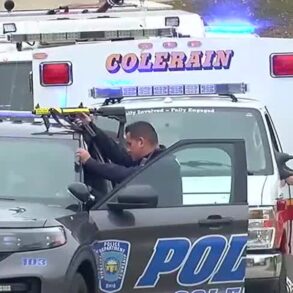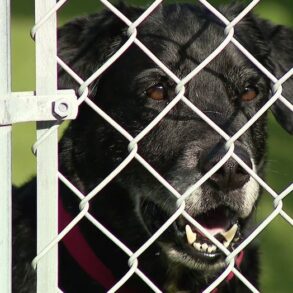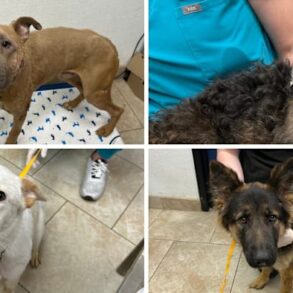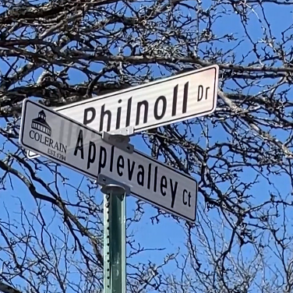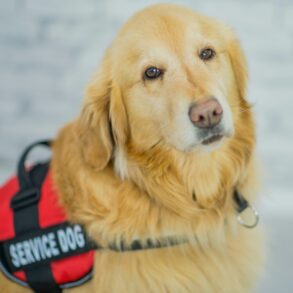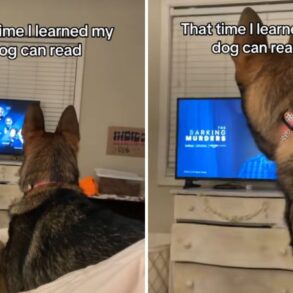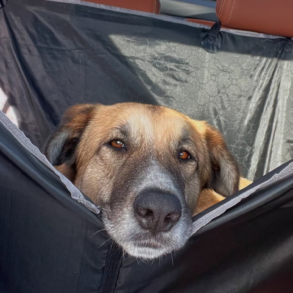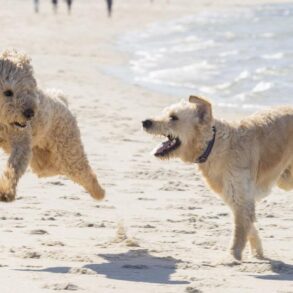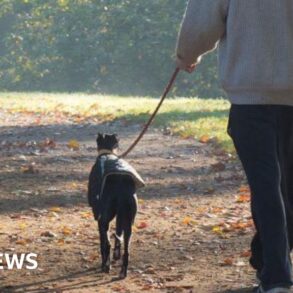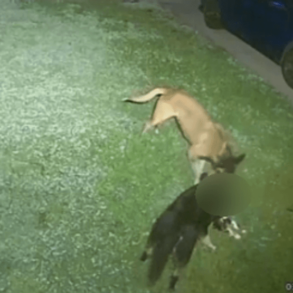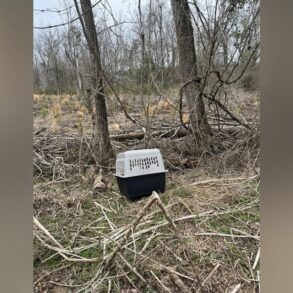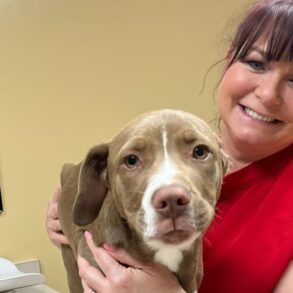“Hi, Maggie. Hi, sweet girl. There you go.” Today we’re at the Montgomery County Animal Care and Control Center, and we’re talking with students that have been working all semester on an enrichment program for the dogs in the shelter, as well as a training class that they’ve been developing to work on the dogs training skills and to help train some volunteers on how to work with dogs. That’s living in the shelter can be a really stressful experience. Different types of enrichment have been shown to reduce stress. We’ve been looking at a few behavioral changes that we’ve seen across the semester as the dogs have been getting enrichment, including front of kennel behavior, which has been shown to help get dogs adopted if they’re closer to the front and engaging with people and potential adopters as they come by. “Hey, hiccup. Hi, buddy.” Not only does it improve that welfare on the immediate day to day basis, but it also helps to get them there forever homes and help find them their people and their families. “Shake.” Half of the students have been working on enrichment and the other half have been working on this training class that they can offer to volunteers here to help develop positive reinforcement training skills. “Perfect. That was good. Yes, yes.” Today’s class focused on dog reactivity. I’ve been able to work with them on some of the behaviors that we’ve taught today. We’ve definitely seen some decreases in that. For example, Molly. She’s able to kind of be around other dogs. At the start, she wasn’t really able to do that. “Good job.” When we started this last semester, a lot of us didn’t have a lot of dog training experience. So, under doctor Gunter and doctor Feuerbacher, they really taught us a lot of things that we can work on that are really helpful for shelter dogs, and so we’ve been able to take what we learned there and put it into here, and that’s really helped bolster our experience. “Trapper. Yes.” A lot of the students who are in this class are interested in working in animal behavior or going to vet school or working with animals in some capacity, particularly companion animals. So being able to have these interactions and have these different experiences builds skills, and also continues to drive their passion for working with companion animals.
This post was originally published on this site be sure to check out more of their content.




